|
Books Should Be Free Loyal Books Free Public Domain Audiobooks & eBook Downloads |
|
|
Books Should Be Free Loyal Books Free Public Domain Audiobooks & eBook Downloads |
|
Romance Novels |
|---|
|
Book type:
Sort by:
View by:
|
By: Captain Charles de Créspigny | |
|---|---|
 Where the Path Breaks
Where the Path Breaks
The soldier awakened from the brink of death eight months after his injury on the battlefield. As he slowly regained his senses and his memory, the face of a girl creeps into his mind, and he soon recalls that this girl had married him out of pity on the day he went into battle. The wedding had been a true "war wedding".".Inspired by the face and the vague recollections which were taking shape, and after learning that his day-bride had since remarried (believing her day-husband killed in action), the battle-scarred soldier decides to re-invent himself, take on a new name, and seek a new life... | |
By: Caroline Lockhart (1871-1962) | |
|---|---|
 Dude Wrangler
Dude Wrangler
Spoiled, handsome, 24 year old Easterner meets pretty, no-nonsense gal from Wyoming, is instantly smitten and does a sea-change to try and impress her in this genial romantic comedy. | |
By: Caroline Ticknor (1866-1937) | |
|---|---|
 Hypocritical Romance, and Other Stories
Hypocritical Romance, and Other Stories
This is a collection of twelve original and entertaining little romances. Literature is an important anchor that helps us understand society in the American Gilded Age in the late ninteenth century, and these stories allow us to understand the marriage market of the time. - Summary by Carolin"Miss Ticknor, well known as one of the most promising of the younger school of American writers, has never done better work than in the majority of these clever stories, written in a delightful comedy vein." - The Publisher | |
By: Carolyn Wells (1862-1942) | |
|---|---|
 Patty Blossom
Patty Blossom
| |
 Mystery of the Sycamore
Mystery of the Sycamore
Instead of prison time, former governor, Samuel Appleby, sentences his former rival, Daniel Wheeler to imprisonment on his homestead with a very strange addendum. He then endeavors to convince Mr. Wheeler to endorse his son’s candidacy for governor with a promise of commuting his sentence. In the meantime, Samuel Appleby is murdered in Wheeler’s home. The discovery of the identity of the murderer has many twists and turns filled with love, devotion, gumshoe dialog, and weird circumstances that will delight the listener in a most unusual way. | |
By: Catherine Carswell (1879-1946) | |
|---|---|
 Open The Door
Open The Door
This award-winning book tells the coming of age story of Joanna Bannerman. Considered largely autobiographical, it shows Joanna with all her complexities and contradictions, some of which are faced by women almost 100 years later. Perfect for those who love sharp and witty novels. - Summary by Stav Nisser. | |
By: Charles Clark Munn (1848-1917) | |
|---|---|
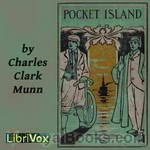 Pocket Island
Pocket Island
Along the coast of Maine are littered thousands of small islands. One such, named 'Pocket Island' by the locals was so called because of a pocket formed twice daily by the waning of the tides. The coast of Maine holds many secrets and legends, and Pocket Island was no exception. Subtitled "A Story of Country Life in New England", this story holds such varied and fascinating glimpses into the lives of a few individuals, and is not limited to merely a story of ghosts, of war, of barn dances, friendship, tales of rum-runners, smugglers, and seafarers... | |
By: Charles Dickens | |
|---|---|
 Great Expectations
Great Expectations
From the opening passage itself of Great Expectations by Charles Dickens, the reader is drawn into the world of the hero, Pip, who is at that time, seven years old. The author creates an unforgettable atmosphere: the gloom of the graveyard, the melancholy of the orphan boy, the mists rising over the marshes and the terrifying appearance of an escaped convict in chains. Told in first person (one of the only two books that Dickens used this form for, the other being David Copperfield) Great Expectations is a classic coming of age novel, in which we trace the growth and evolution of Pip or Philip Pirrip to give his full name... | |
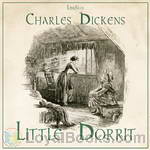 Little Dorrit
Little Dorrit
Originally published in monthly installments between 1855 and 1857, the novel focuses on the various forms of imprisonment, both physical and psychological, while also concentrating on dysfunctional family ties. Accordingly, Dickens avidly criticizes the social deficiencies of the time including injustice, social hypocrisy, the austerity of the Marshalsea debtors’ prison, and bureaucratic inefficiency. The novel kicks off with the introduction of William Dorrit, the oldest prisoner in the Marshalsea prison, who is also referred to as The Father of the Marshalsea... | |
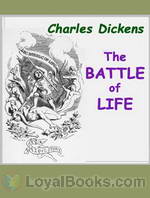 The Battle of Life
The Battle of Life
While "The Battle of Life" is one of Charles Dickens' Christmas Books - his annual release of a story just before Christmas - this one breaks the tradition by not being concerned with Christmas. Rather, its subtitle, "A Love Story", reveals more of the plot. The major events of this book take place on land that once was a battleground. That is just a backdrop for Dickens' idea of the real battle of life - finding and winning the right partner, so that life will go on to the next generation. The family that lives there is rather confused in its affections and intentions regarding who should end up with whom... | |
By: Charles Garvice (-1920) | |
|---|---|
 The Woman's Way
The Woman's Way
| |
 Mistress of Court Regna
Mistress of Court Regna
On the death of Lord Wharton, beautiful young Claire is shocked to find herself the heiress to Court Regna along with the title, the vast fortune and lands that it entails. She meets a poor, handsome architect, and as their love blooms, she misinterprets a chance meeting, which leads her to doubt and refuse him. He immediately leaves Regna not realizing that in doing so, he is suspected of running away with a local village girl who disappeared the same night.. A reversal of fortune, lies, treachery, murder and long hidden secrets abound as we follow the separate adventures of Claire and Gerald and those who become entangled in their lives lives along the way... | |
By: Charles Goddard (1879-1951) | |
|---|---|
 The Perils of Pauline
The Perils of Pauline
The Perils of Pauline is one of the first damsel in distress serials. The story is complete with undaunted hero, courageous damsel, unscrupulous villains galore, and other worldly interest. Before getting married, Pauline wants to experience the world and have adventures. When her guardian dies and leaves her an estate in trust of his secretary, adventures suddenly become more hazardous. Pauline charters aeroplanes, meets untrustworthy pirates, braves dangerous China Town, flies in a hot air balloon, adventures in the Wild West, encounters international spies, and escapes many other perils with the aid of her would-be fiancé, Harry, and an Egyptian mummy. | |
By: Charles Goff Thomson | |
|---|---|
 Terry A Tale of the Hill People
Terry A Tale of the Hill People
| |
By: Charles Major (1856-1913) | |
|---|---|
 When Knighthood Was in Flower
When Knighthood Was in Flower
Set during the Tudor period of English history, When Knighthood Was in Flower tells the tribulations of Mary Tudor, a younger sister of Henry VIII of England who has fallen in love with a commoner. However, for political reasons, King Henry has arranged for her to wed King Louis XII of France and demands his sister put the House of Tudor first, threatening, "You will marry France and I will give you a wedding present – Charles Brandon's head!" | |
By: Charles Monroe Sheldon (1857-1946) | |
|---|---|
 His Brother's Keeper
His Brother's Keeper
Stuart Duncan arrives home from college to find the workers in his father's mine on the brink of a strike. Leading the strike is Stuart's boyhood friend, Eric Vassal. Will they be estranged by the opposing forces? Or can they learn to work together as Stuart learns the true meaning of being His Brother's Keeper? | |
By: Charles Neville Buck (1879-1930) | |
|---|---|
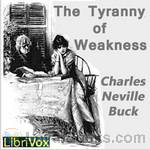 The Tyranny of Weakness
The Tyranny of Weakness
Torn between her love for her aging father, a minister steeped in the puritanical values of old New England, and the young Virginian who was born and raised of southern chivalrous tradition, the many and conflicting emotions which stir deep within Conscience Williams envelop this tale of desire, devotion, inner strength, devious treachery, and individuality of spirit. | |
By: Charles Norris Williamson (1859-1920) | |
|---|---|
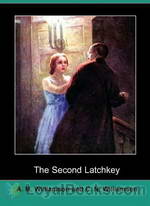 The Second Latchkey
The Second Latchkey
Jewelry thefts, society parties, clairvoyance, and romance marks this mystery, which is set in England and the US in the early 20th century. | |
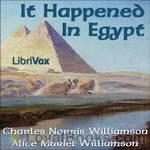 It Happened In Egypt
It Happened In Egypt
Lord Ernest Borrow and Captain Anthony Fenton think they know a secret – a secret that could make them both rich. En route, they are sidetracked by Sir Marcus Antonius Lark, a woman who thinks she’s Cleopatra reincarnate, a Gilded Rose of an American Heiress, and Mrs. Jones, a mysterious Irish woman with a past. Will they find the secret? Or will the trip up the Nile on the Enchantress Isis net them another discovery altogether? | |
 The Golden Silence
The Golden Silence
Trying to get away from an engagement he had got himself into more or less against his will, Stephen Knight travels to Algiers to visit his old friend Nevill. On the Journey there he meets the charming and beautiful Victoria. She is on her way to Algiers to search for her sister, who had disappeared years ago after marrying an Arab nobleman. With the support of his friend, Stephen Knight decides to help the girl - but when she also disappears, the adventure begins... | |
 A Soldier of the Legion
A Soldier of the Legion
| |
 The Lion's Mouse
The Lion's Mouse
| |
 The Heather-Moon
The Heather-Moon
| |
 Secret History Revealed By Lady Peggy O'Malley
Secret History Revealed By Lady Peggy O'Malley
| |
 Set in Silver
Set in Silver
| |
 The Port of Adventure
The Port of Adventure
| |
By: Charlotte Brontë (1816-1855) | |
|---|---|
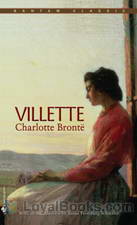 Villette
Villette
Villette was Charlotte Bronte's last published novel. It came out in 1853, just two years before her death in 1855. It is a poignant, strangely lonely and sad work, steeped in conflict between society's demands and personal desires. Set in the fictional town of Villette in France, it is the story of the young and intelligent Lucy Snowe, the narrator in the book. She is described by another character in the book as having “no beauty...no attractive accomplishments...” and strangely seems to lack a personal history or living relatives... | |
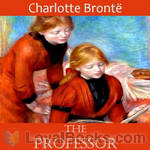 The Professor
The Professor
The book tells the story of a young man named William Crimsworth. It describes his maturation, his loves and his eventual career as a professor at an all-girls’ school. | |
By: Charlotte Lennox (1730-1804) | |
|---|---|
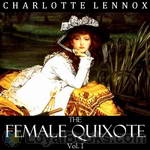 The Female Quixote
The Female Quixote
The novel formally inverts Don Quixote: as the don mistakes himself for the knightly hero of a Romance, so Arabella mistakes herself for the maiden love of a Romance. While the don thinks it his duty to praise the platonically pure damsels he meets (such as the woman he loves), so Arabella believes it is in her power to kill with a look and it is the duty of her lovers to suffer ordeals on her behalf. | |
 Henrietta Volume 1 (dramatic reading)
Henrietta Volume 1 (dramatic reading)
Henrietta is a strong willed young lady who will not give in to her aunt and marry the suitors she proposes. She runs away and adventure ensues. However she meets one young man who she is quite taken with but he does not share all about himself and Henrietta finds herself in some tricky situations. | |
By: Charlotte Mary Yonge (1823-1901) | |
|---|---|
 Heir of Redclyffe
Heir of Redclyffe
The Heir of Redclyffe (1853) was the first of Charlotte M. Yonge's bestselling romantic novels. Its religious tone derives from the High Church background of her family and from her friendship with a leading figure in the Oxford Movement, John Keble, who closely supervised the writing of the book. The germ of its plot was suggested by her friend Marianne Dyson. | |
By: Charlotte Turner Smith (1749-1806) | |
|---|---|
 The Old Manor House
The Old Manor House
The proud, cruel and arrogant Mrs. Rayland never married. Therefore, "Rayland Hall", the old Manor House of the title, had to pass to their heir, Somerive, whom they never treated kindly. According to the British laws at the time, the heir must be the oldest son. But what is to be done when the second son is more worthy of it - and is more beloved by Miss Rayland herself? And must the fact that he is in love with a servant and dependent of Miss Rayland take its toll? | |
By: Chretien de Troyes | |
|---|---|
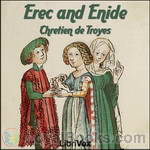 Erec and Enide
Erec and Enide
A medieval romance in which Erec goes through many trials until he is sure of Enide’s loyalty and true love | |
By: Clara Louise Burnham (1854-1927) | |
|---|---|
 In Apple-Blossom Time A Fairy-Tale to Date
In Apple-Blossom Time A Fairy-Tale to Date
| |
 Key Note
Key Note
Love blooms amid the gorgeous scenery of an island off the coast of Maine as a group of vacationers discover an abused boy and set out to rescue him. This 1921 novel is another lovely creation by author Clara Louise Burnham. - Summary by Christi Lupher | |
By: Cosmo Hamilton (1879-1942) | |
|---|---|
 Who Cares? a story of adolescence
Who Cares? a story of adolescence
| |
By: D. H. Lawrence (1885-1930) | |
|---|---|
 The Rainbow
The Rainbow
Set against the backdrop of a rapidly industrializing England, the bewildering shift in social structure, the fading away of traditions and the advent of new ways of life, The Rainbow by DH Lawrence depicts how one family's story becomes the story of a society. Originally planned as a novel titled The Sisters, Lawrence finally split the theme into two separate novels after many revisions and rewrites. The Rainbow is the first novel in the Brangwen family saga. Tom Brangwen is a small time farmer in rural Nottinghamshire... | |
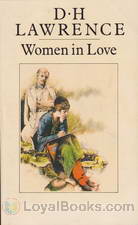 Women in Love
Women in Love
If you have read DH Lawrence's The Rainbow, you'd certainly want to read the sequel, Women in Love. Published in 1920, the two books were originally meant to be a single work, spanning several generations of the Brangwen family, especially the women. However, a complicated publishing history, delays and editorial revisions, followed by the hostile reception and controversies that faced The Rainbow led to a gap of five years between the two books. Yet, by 21st century standards, Women in Love seems almost tame, and modern-day readers may well be bewildered by the amount of criticism it generated among the custodians of morals in an earlier age... | |
 Lost Girl
Lost Girl
"There is no mistake about it, Alvina was a lost girl. She was cut off from everything she belonged to." In this most under-valued of his novels, Lawrence once again presents us with a young woman hemmed in by her middle-class upbringing and (like Ursula Brangwen in The Rainbow) longing for escape. Alvina Houghton's plight, however, is given a rather comic and even picaresque treatment. Losing first her mother, a perpetual invalid, and later her cross-dressing father, a woefully ineffectual small-scale entrepreneur, Alvina feels doomed to merge with the tribe of eternal spinsters who surround her in the dreary mining community of Woodhouse... | |
By: D. K. Broster (1877-1950) | |
|---|---|
 ''Mr Rowl''
''Mr Rowl''
Raoul des Sablières, a French parole prisoner in England during the Napoleonic Wars, becomes enmeshed in a complicated tangle where his honour conflicts with his parole, and is sent to prison. Juliana Forrest, for whose sake he broke his parole, does her utmost to save him, and in his adventures and misfortunes, Raoul eventually also finds help from an unlikely source. This is a fun adventure story and romance, written in a style similar to Georgette Heyer. - Summary by Elin | |
By: Daisy Ashford (1881-1972) | |
|---|---|
 The Young Visiters, or Mr. Salteena's Plan
The Young Visiters, or Mr. Salteena's Plan
The Young Visiters is a comic romance novella that parodies upper class society of late Victorian England. Social climber Alfred Salteena introduces his young lady friend Ethel to a genuine gentleman named Bernard and, to his irritation, they hit it off. But Bernard helps Alfred in his plan to become a gentleman, which, Alfred hopes, will help him win back Ethel. | |
By: Daniel Defoe (1659/1661-1731) | |
|---|---|
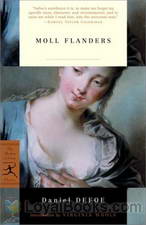 The Fortunes and Misfortunes of the Famous Moll Flanders
The Fortunes and Misfortunes of the Famous Moll Flanders
A woman in prison awaiting a death sentence is given a reprieve because she is pregnant. She migrates to America abandoning the baby to the care of a foster mother. The child, a girl, grows up and begins working as a servant in a wealthy household. Here she is pursued by the two sons of the house and ultimately marries the younger one. When he dies, leaving her with two young children to look after, she begins a life of deception and confidence trickery which ends in great tragedy and disgrace. In her old age, events take a less tragic turn and her redemption comes from sources she least expects... | |
By: Dante Alighieri (1265-1321) | |
|---|---|
 New Life (La vita nuova)
New Life (La vita nuova)
One of Dante's earliest works, La vita nuova or La vita nova (The New Life) is in a prosimetrum style, a combination of prose and verse, and tells the story of his youthful love for Beatrice. The prose creates the illusion of narrative continuity between the poems; it is Dante's way of reconstructing himself and his art in terms of his evolving sense of the limitations of courtly love (the system of ritualized love and art that Dante and his poet-friends inherited from the Provençal poets, the Sicilian poets of the court of Frederick II, and the Tuscan poets before them)... | |
By: David Carpenter Knight | |
|---|---|
 The Love of Frank Nineteen
The Love of Frank Nineteen
| |
By: David Graham Phillips (1867-1911) | |
|---|---|
 The Fortune Hunter
The Fortune Hunter
| |
 The Price She Paid
The Price She Paid
| |
 The Cost
The Cost
| |
By: David Whitelaw | |
|---|---|
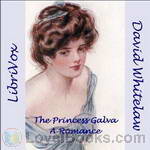 The Princess Galva
The Princess Galva
Edward Povey had been a correspondence clerk for twenty-two years when he was summarily dismissed. So how did he find himself mixed up with an orphan girl, who was really a princess, as she sought to reclaim her throne from the man who had killed her parents? Well, however it had happened, it was romantic. And after two decades in the basement office of a shipping company, he was ready for a bit of romance. (Introduction by MaryAnn) | |
By: de Troyes Chrétien (12th cent.) | |
|---|---|
 Cliges; a romance
Cliges; a romance
| |
By: Dinah Craik (1826-1887) | |
|---|---|
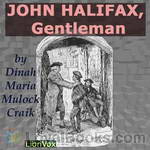 John Halifax, Gentleman
John Halifax, Gentleman
This novel, published in 1856, was one of the popular and beloved novels in the Victorian era. It is told in the first person by Phineas Fletcher, an invalid son of a Quaker tanner who is presented to us in the beginning as a lonely youth. John Halifax, the first friend he ever had, is a poor orphan who is taken in by his father to help in the work which his sickly son can't constantly do. Phineas tells us in an unforgettable way how John succeeded in rising from his humble beginning and become a wealthy and successful man. But with the money come horrible troubles... In an unforgettable manner, we learn to know all the characters of the novel as if they really lived. | |
By: Dornford Yates (1885-1960) | |
|---|---|
 Jonah and Co.
Jonah and Co.
| |
By: Dorothy Canfield Fisher (1879-1958) | |
|---|---|
 The Bent Twig
The Bent Twig
Semi-autobiographical series of incidents in the life of an intellectual American family in the late 19th - early 20th Century as seen by favored daughter, Sylvia Marshall. Her father is an economics professor in a Midwestern state university and she is following in his inquisitive footsteps. Canfield writes this in a matter-of-fact manner with Tarkingtonesque good humor. | |
By: Dorothy Parker (1893-1967) | |
|---|---|
 Men I'm Not Married To
Men I'm Not Married To
A saucy little poem commenting upon all men that Ms. Parker didn't marry, perhaps implying that upon marrying, the husband becomes far more special than all the other men in the world. It's sort of the same theme embodied in Saint-Exupéry's The Little Prince, who was saddened to discover that his rose was like any other rose, except when he further realized that his rose depended upon him alone for her care, and was the only rose that belonged to him. ~ Summary by Michele Fry | |
By: E. A. Gillie | |
|---|---|
 Barbara in Brittany
Barbara in Brittany
Barbara, an English girl and the eldest of her family, spends most days helping her widowed mother care for her younger siblings. Then disaster strikes – or so the children believe! Barbara is taken to France to see Paris by her father’s formidable sister, Aunt Anne. She stays on in Brittany to perfect her French. In this series of funny stories about her adventures in France, we meet a cast of recurring characters – and both Barbara and Aunt Anne find love! (Summary by Sibella Denton) | |
By: E. T. A. Hoffmann (1776-1822) | |
|---|---|
 Weird Tales, Volume 2
Weird Tales, Volume 2
Paradoxically, it is variety that unites the tales you are about to read. They take place in widely separated countries and historical periods, and their outcomes—fortunate or tragic—cannot always be predicted with accuracy. The characters too speak with varied voices; even the narrative voice is not uniform, for the author often frames story within a story, using a character in one tale to narrate another. The reader will sometimes feel as though the author is extending an invitation to enter his workshop to observe him at his trade and admire his craftsmanship... | |
By: E. Temple (Ernest Temple) Thurston (1879-1933) | |
|---|---|
 Sally Bishop A Romance
Sally Bishop A Romance
| |
By: E.D.E.N. Southworth (1819-1899) | |
|---|---|
 The Missing Bride
The Missing Bride
Prepare yourself for a journey, full of adventures and plot twists which will keep you guessing until the very end. This is psychological romance at its best. In the war of 1814, an American heiress falls in love with a British officer. This ill-fated marriage brings together a large group of interesting people who would never have met in other circumstances. | |
 Her Mother's Secret
Her Mother's Secret
What kind of secret could a mother be keeping that would keep long time lovers apart, and force her eldest daughter into a hasty marriage? Young Odalite and her cousin Leonidas have lived the past three years apart, with Leonidas at sea, and were planning on marrying when he came back. An old acquaintance turns up who knows something about Odalite’s mother’s past, and holds that secret over her, threatening dishonor to her and her family, unless she gives him what he wants. Will true love win the day? ( Bridget Gaige) | |
By: Edith Nesbit (1858-1924) | |
|---|---|
 Lark
Lark
"The Lark" has all the charm and freshness which have made Miss Nesbit's former novels so justly popular, and yet the story ts entirely new and original. Two girls, Jane and Lucilla, are led by Jane's guardian to entertain high hopes. The fortune, however, which Jane was to have inherited, has been lost by unlucky speculations, and the two girls have to set about earning their own livings. They experience many adventures and ups and downs of fortune before they meet with the two men who ensure their happiness and prosperity. A delightful story, well worth reading. | |
By: Edith Wharton (1862-1937) | |
|---|---|
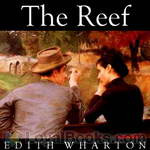 The Reef
The Reef
George Darrow, Anna Leath’s first love, is finally coming from London to propose to her. However, he drifts to an affair with Sophy Viner, Anna’s daughter’s naïve and young governess. Sophy’s relationship with Darrow and Anna’s family can threaten his success. In this novel, as in many of Wharton’s other well known novels, we see the eternal love triangle. With her sly and lovely writing style, Wharton delivers to us in this wonderful novel a cast of unforgettable characters and many unforgettable scenes which we can vividly imagine. What would Darrow choose: success or love? Would Anna marry him despite his affair with Sophy? (Summary by Stav Nisser.) | |